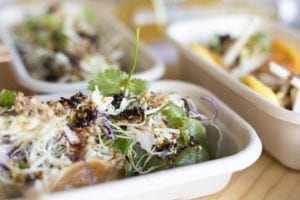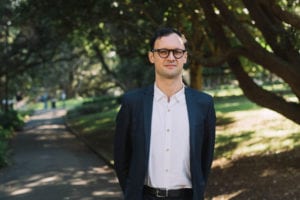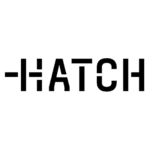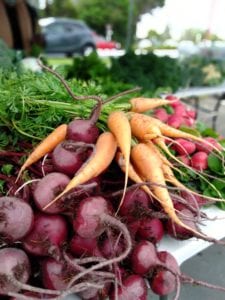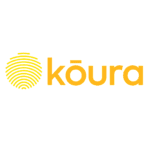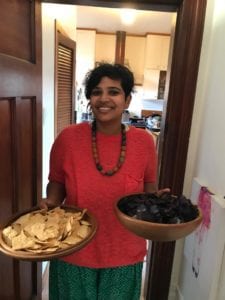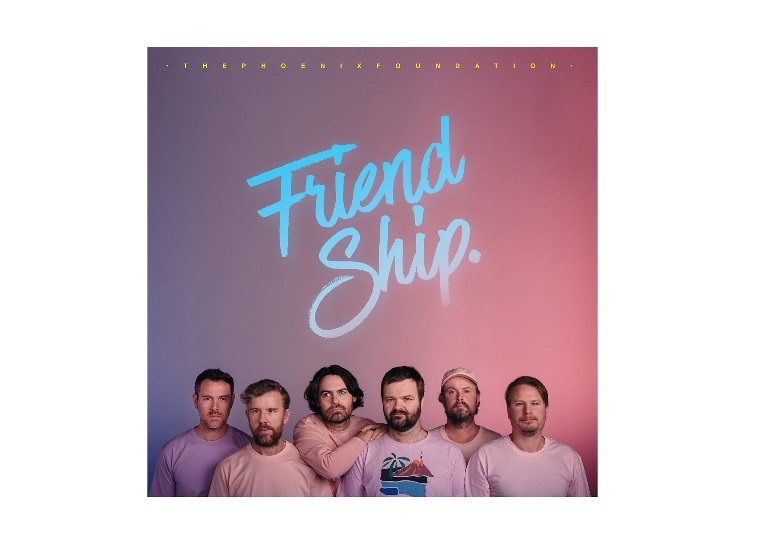
The Phoenix Foundation: Friend Ship.
Much-loved kiwi icons The Phoenix Foundation are back with their first new album in five years, Friend Ship, has just been released.
Since their last album Giving Up Our Dreams, they have been writing, recording, touring with a Symphony Orchestra, creating the acclaimed soundtrack for Hunt For The Wilderpeople, building shrines to light, creating scores for VR and producing other bands.
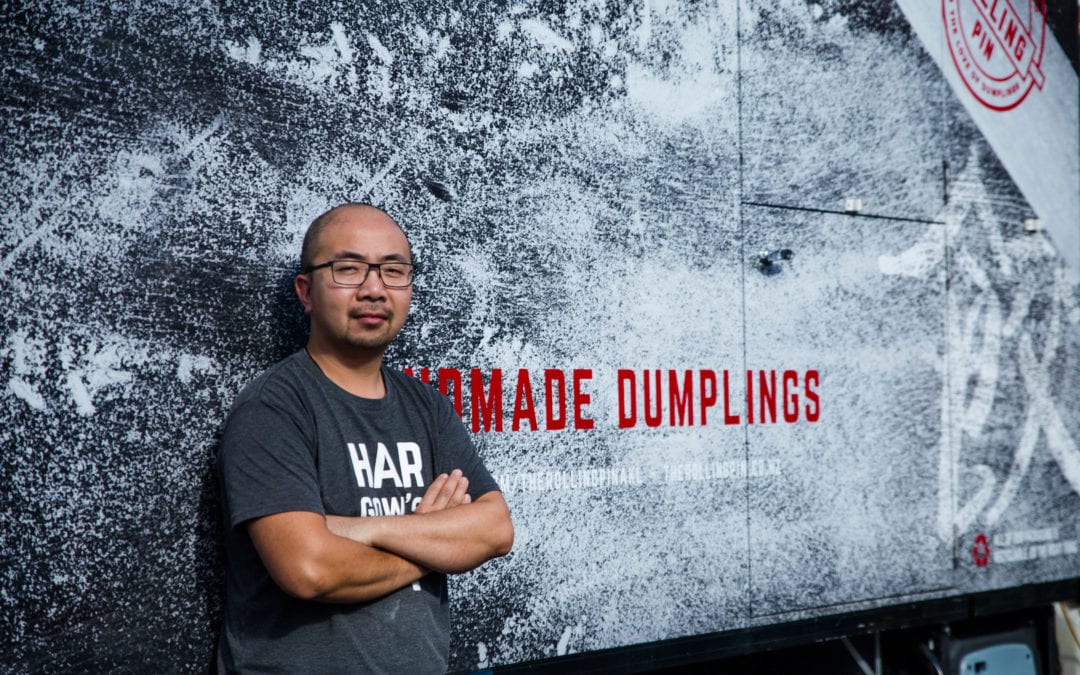
The Best Dumplings in Town
Gordon moved to New Zealand in his early twenties and started at the bottom of the kitchen ladder as a kitchen hand. After many years of working in restaurants and noting how hard it was to run a successful restaurant in New Zealand (mainly due to the smaller captive audience), Gordon and his wife Yina Yang decided to start a food truck, The Rolling Pin, in 2016.
The Rolling Pin brings a unique twist to South East Asian cuisine. They wanted to show Kiwi’s that there is more to Asian food that noodles and fried rice and have brought a unique twist to the Asian food scene in NZ with their Dumplings & Slaw, Noodle Salad Bowls and Stuffed Bao’s. After serving several thousand dumplings and receiving acclaim as one of Auckland’s best dumplings, they now have a permanent spot in Wynyard Quarter as well.
The best word to describe The Rolling Pin’s food is ‘layered’. Their combinations create the perfect balance of sour, savoury and sweet and their legendary dumplings come teamed with a fresh Asian salad for that crunch. Gordon believes that the condiments he serves are equally as important as the dumpling itself and is famous for refusing to serve his dumplings if they run out of their slaw.
On the show, we talk about:
- Being a chef v/s a cook: overcoming the Asian mentality of hospitality not being a great career choice
- Innovating on the traditional dumpling and the importance of condiments
- Having a food truck in a corporate location v/s central Auckland
- Why having a hospitality business in NZ is much harder than other Asian cities
Listen to the Podcast Here:
Love dumplings? You need to try their Tsingtao pulled pork and Penang pulled beef dumplings.
Get your fix of delicious dumplings delivered.
Quotes from the episode:
“As a commis, I used to come to work really early in the morning so I could do stock-take with the Head Chef and learn all the names of the Western ingredients. After hours, I would watch plenty of You Tube. No movies, just videos about food. That really helped me get familiar with the food I had to cook at work.”
“How many times did I eat Sweet and Sour Pork in China? It’s rare to go to a restaurant in China and ask for fried rice or sweet and sour pork. These dishes are just something Chinese people cook for others”.
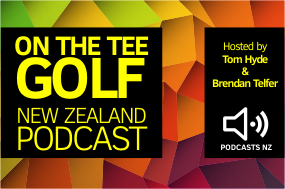
What’s Up At Muriwai?
Muriwai Beach Golf Club is one of the most rustic, charming golf links in New Zealand. With the Tasman Sea lapping at its shoreline, the club has overcome some serious (and expensive) re-routing and is today one of the most successful clubs in the country with a sold out membership and waiting list. Our hosts speak with long time President Malcolm Cooper and GM Andrew Jackson.
Listen now:
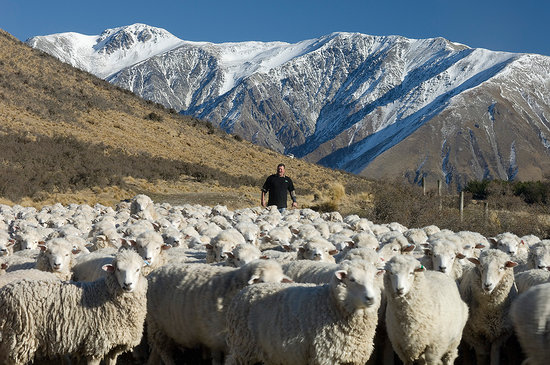
Is Sheep and Beef Farming already Carbon Neutral? Possibly, Dr Brad Case, AUT
Here’s a surprise for you. It’s possible that sheep and beef farms could already be net carbon neutral in NZ. According to a new report, sheep and beef farms hold 17% of NZ’s forests – or more technically 17% of NZ’s woody vegetation. On the most generous estimates, that vegetation could be sequestering more GHGs than what all our dry-stock herds are emitting. Even at the least generous estimate the gap is small, meaning an increase in planting or a small decrease in stock numbers could result in a net zero or, even better, net-positive position. That’s great news. Or is it? The study, while conducted by AUT was funded by the farming body Beef & Lamb – and I guess they would say that. Even if it is true, it says nothing about the bigger bovine in the room, dairy industry, of which many of those sheep and beef farms have been converted into. Plus there’s still the issues of nitrate run off, winter grazing, excess water use and so on.
Anyway, with me to discuss the study and no doubt slap me for being so negative was one of the report’s authors Dr Bradley Case, Senior Lecturer in the Applied Ecology Department at AUT. I was joined too by Dr David Hall, also of AUT, who has co-authored a related report on the carbon sequestration potential of our native forests, which we will discuss very soon. Listeners may be familiar with David’s previous star appearances on this show so welcome back David and welcome Brad.
Hear the Podcast Here:
You can read the Beef and Lamb report here
And the Aotearoa Circle Report here
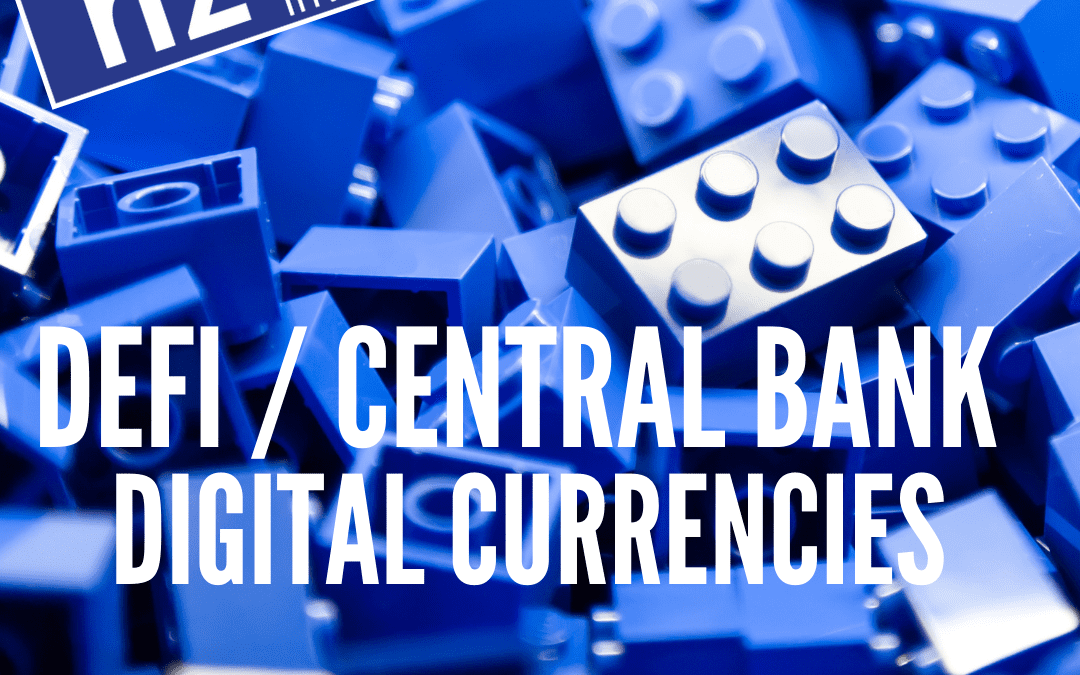
DeFi / CBDC’s / Other Things – Mark Pascall
A NZ perspective on DeFi, the booming crypto trend. Today I sit down with Wellington-based blockchain renaissance man, Mark Pascall, about the epic rise of decentralised finance. We discuss why DeFi applications have been going ballistic, how New Zealanders can buy into it, and explain some of the risks to consider. We also talk about Central Bank Digital Currencies and the dangers of big corporates like Facebook printing their own digi-cash.
Last week we went down the Bitcoin rabbit hole, and this week we journey even further into the many warrens that make up this exciting (and utterly confounding) blockchain space.
We start off by talking about the world of money as we understand it, where our dollars can be broken into a couple of different categories; cash and the rest of it.
Cash is the stuff buried in our backyard, stuck behind our couch cushions, and whirring around the black market.
The other stuff is the majority of the money we deal with. The banks will generally lend out far more of it than they actually have on hand at anyone time – this is fractional reserve banking.
You could say a dollar is born every time you get a loan. It then floats around for a bit and dies, when tax is paid loan is repaid – Hakuna Matata!
The next fastest growing category is in digital currencies such as Bitcoin and Ethereum, which were spun out in direct protest to the problematic situation just described. Because blockchain-based digital currencies share one ledger between every computer involved in a decentralised manner, the double spend problem is avoided and we have great traceability of this money.
As you’d expect for monopolistic companies and anxious nation states both, these decentralised currencies can make them feel a little insecure. As a result, brands like Facebook have been busy trying to roll out their own digital currencies, while reserve banks around the world are desperately trying to regulate so they can spin out their own version, in the form of Central Bank Digital Currencies.
Basically, the promise of ubiquitous digital currencies feels inevitable; it’s really a race to see who arrives first. It could come down to ‘the people’ vs ‘corporate’ vs some sort of government/central bank alliance
As Mark puts it in this episode, “we now live in a global village that doesn’t recognise geographical boundaries. It doesn’t make sense to have a world government, and it’s a really bad idea to have a capitalist corporation doing it, so what else can we do?”
Queue DeFi, or decentralized finance.
In the broadest of terms, DeFi is a financial system built on the inherently shared nature of the blockchain. Because these systems aren’t owned by any one person (even the Dalai Lama could surely be corrupted at the right price), they’re virtually impossible to be soiled by personal interests.
More recently, the money going into some of these applications has been going gangbusters. Up in the many billions of bucks, people clearly have an appetite for the likes of Augur, for betting, Aave for borrowing and lending, and Uniswap for decentralised crypto exchanges.
It has lots of the signs of the ICO boom (and then bust) in 2017, but it also has the promise of a fairer, less corrupt financial system.
Of course I would advise with something as inherently speculative as this that any investment should be no more than you’re willing to lose. There is no 0800 number once you’re out there. You’re exposed to the elements.
Get in contact with Mark @
Phone/Whatsapp: (+64) 21 223 7132
Telegram: @mark_pascall
Keen to learn more about how you can purchase crypto? Check out episode 94 here with Easy Crypto for a bit of background as to why I recommend them for any first time Crypto buyer to be. If you’re ready to get into Bitcoin, make a start here by setting up an account with Easy Crypto.
_________________________________________________________________
The NZ Everyday Investor is brought to you in partnership with Hatch. Hatch, let’s you become a shareholder in the world’s biggest companies and funds. We’re talking about Apple and Zoom, Vanguard and Blackrock.
So, if you’re listening in right now and have thought about investing in the US share markets, well, Hatch has given us a special offer just for you… they’ll give you a $20 NZD top-up when you make an initial deposit into your Hatch account of $100NZD or more.
Just go to https://hatch.as/NZEverydayInvestor to grab your top up.
__________________________________________________________________
Like what you’ve heard?
You can really help with the success of the NZ Everyday Investor by doing the following:
1- Tell your friends!
2- Write a review on Facebook, or your favourite podcast player
3- Help support the mission of our show on Patreon by contributing here
4- To catch the live episodes, please ensure you have subscribed to us on Youtube:
5- Sign up to our newsletter here
NZ Everyday Investor is on a mission to increase financial literacy and make investing more accessible for the everyday person!
Please ensure that you act independently from any of the content provided in these episodes – it should not be considered personalised financial advice for you. This means, you should either do your own research taking on board a broad range of opinions, or ideally, consult and engage an authorised financial adviser to provide guidance around your specific goals and objectives.
_____________________________________________________________________________
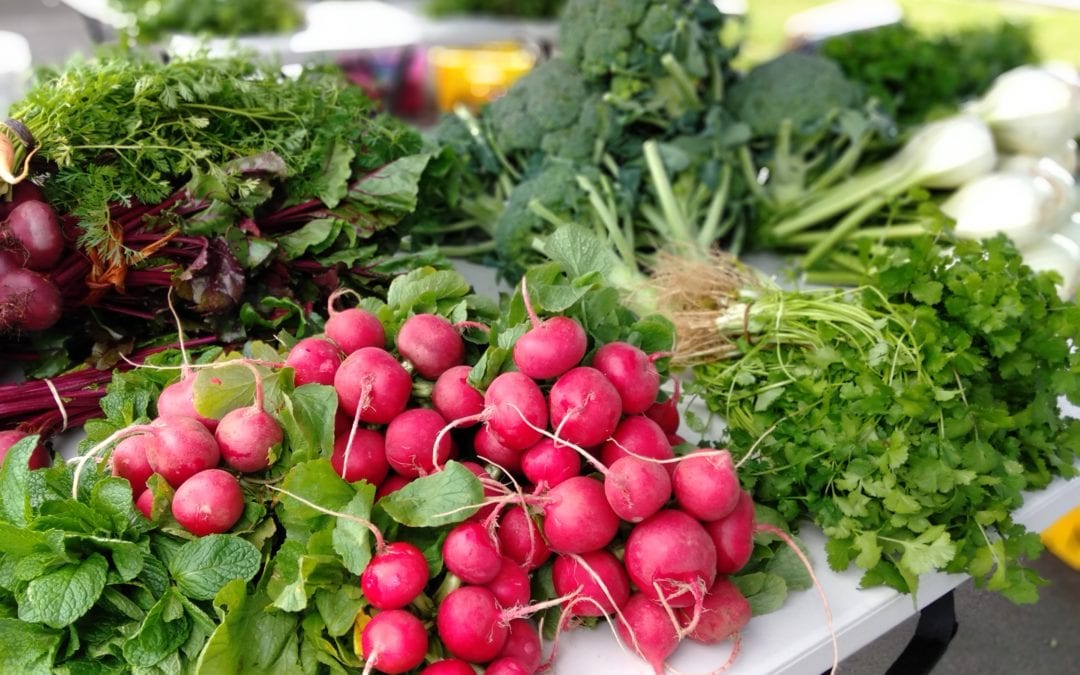
Te Puna: Auckland’s New(ish) Local Market
There’s a new-ish farmers’ market in Auckland, the Te Puna market in Henderson. While the market launched in February this year, it has taken them eight months to get to business as usual mode. Kai West is the group behind the birth of the Te Puna market. Kai West is a collaboration between Healthy Families Waitakere, Panuku, and other community organisations that work towards connecting people to local growers so we can be aware of what we are eating and where that food comes from.
Together, they have created an affordable fresh food market in Henderson’s heart on the Falls Reserve using an unused car park earmarked for redevelopment. The market came about when the local supermarket closed for a refurbishment, and the community had nowhere nearby to buy fresh produce. There are also many unhealthy fast food options available in that area. Kai West wanted to counter this by creating a healthy and affordable food source that connected the community to local backyard growers.
Jason Dodunski, the market co-ordinator for Te Puna market, has had a rocky journey as they had to stop the market just five weeks after launching. They were one of the first markets to move to a click and collect model using the Open Food Network to support their vendors in selling food already growing in the ground that would have otherwise gone to waste. It helped them tide through the lockdowns, and Te Puna reopened as a regular farmers’ market in September.
On the show, Jason and I talk about:
- Utilising unused space to create something new that connects the community
- Building sustainable food systems by supporting local backyard growers
- Shopping hyper-local and what that teaches us about where food comes from
- The challenges involved in taking a farmers’ market online
Listen to the Podcast Here:
Quotes from the episode:
“We always had a vegetable garden at home. It gave me an appreciation of our connection to the natural world, how great it is to get your hands into the soil and know exactly where your food came from.”
“At Te Puna, we focus on small scale growers and help them create micro incomes for their family. A local market is as much about local food and affordability as it is about social connection.”
Are you looking for a new farmers’ market to visit? Head to Te Puna market this Saturday or check out Te puna Market on Facebook.

Hacking Apple, Dogs using Virtual Reality, NZ Government vs Encryption
A discussion of the tech news of the week with Paul Spain and Denis O’Shea (Mobile Mentor) – Hacking Apple, Dogs using Virtual Reality, NZ Government vs Encryption, IBM reimagined, Microsoft hybrid work and more. Plus a look at international NZ firm Mobile Mentor.
Listen to the Podcast here:
Special thanks to organisations who support innovation and tech leadership in New Zealand by partnering with NZ Tech Podcast:
Umbrellar Connect
Sumo Logic
HP
Samsung
Vodafone NZ
Spark NZ
Vocus
Gorilla Technology
Image: Command Sight
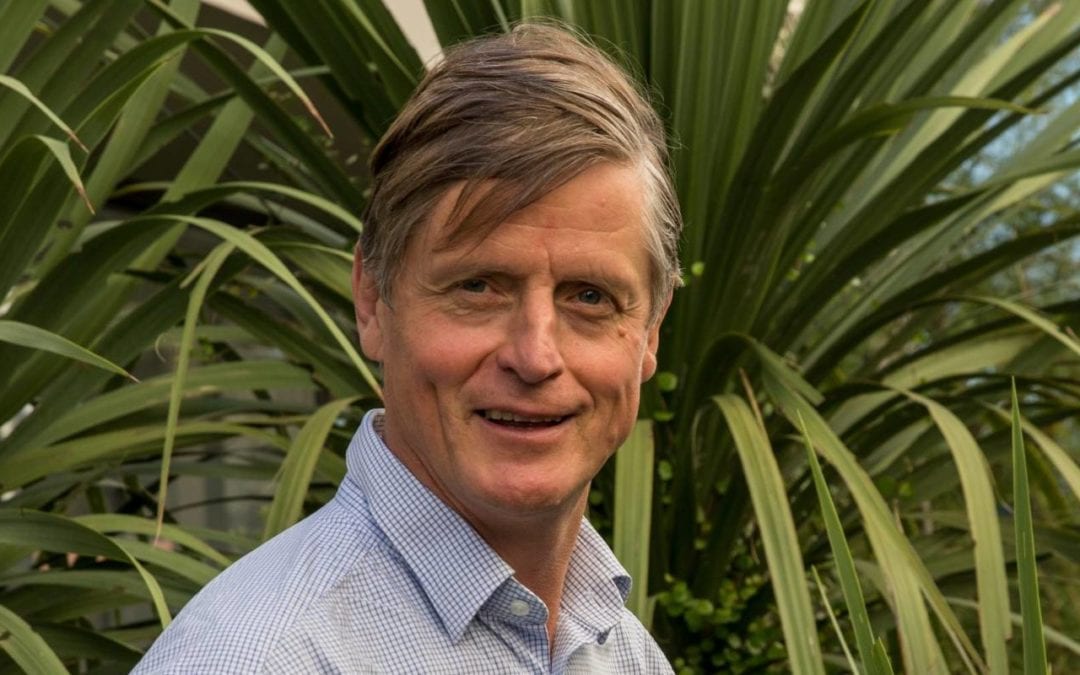
Farming sustainably, at scale. Can it be done? Forbes Elworthy, co-founder of Craigmore Sustainables
Craigmore Sustainables is the only New Zealand land manager that operates at scale in each of New Zealand’s three core primary sectors: horticulture, dairy farming and forestry. It also claims to be a leader in sustainable practices, seeking to become carbon neutral in some of its dairy and kiwifruit operations, employing local owner/operators and finding innovative ways to reduce environmental impact. Co-founder Forbes Elworthy is the fourth generation of Elworthys to own Craigmore Station, one of Canterbury’s largest sheep and beef farms. He has big shoes to fill: his father, Sir Peter Elworthy, led Federated Farmers during the turbulent economic reforms of the 1980s and was on the board of the Reserve Bank. He was also a founder of the Sustainability Council which successfully opposed the release of genetically modified organisms in New Zealand. Farming and a love for the land are clearly in Forbes’s blood, but what does that mean in the 21st century? And how are New Zealand farmers responding to the climate and ecological crisis?
Hear the Podcast Here:
About Craigmore and Map of Ag
Established in 2008 by two New Zealand family farmers – Forbes Elworthy and Mark Cox – Craigmore now has a highly experienced team managing a mix of dairy, grazing, forestry and horticultural properties spread over both islands and more than 15,000 hectares.
Craigmore Sustainables is a New Zealand owned and controlled business set up to help fund development and grow regional food and fibre businesses. While it mostly uses European funding sources, Craigmore appoints and employs local New Zealand management and governance for every business.
Craigmore Sustainables includes 22 dairy farms, located from North Canterbury to North Otago, and a sheep and beef farm in Middlemarch. The company has a sustainability programme in place at each of its farms, horticulture and forestry operations.
It’s aim: to be a long-term producer of high quality food and forest products, managing the land sustainably, and working with the best managers in New Zealand.
Episode Links:
See more about Craigmore Sustainables here.
Also read Craigmore’s latest summary of sustainability trends in agriculture here
Visit Map of Ag, Forbes’ data management business here.
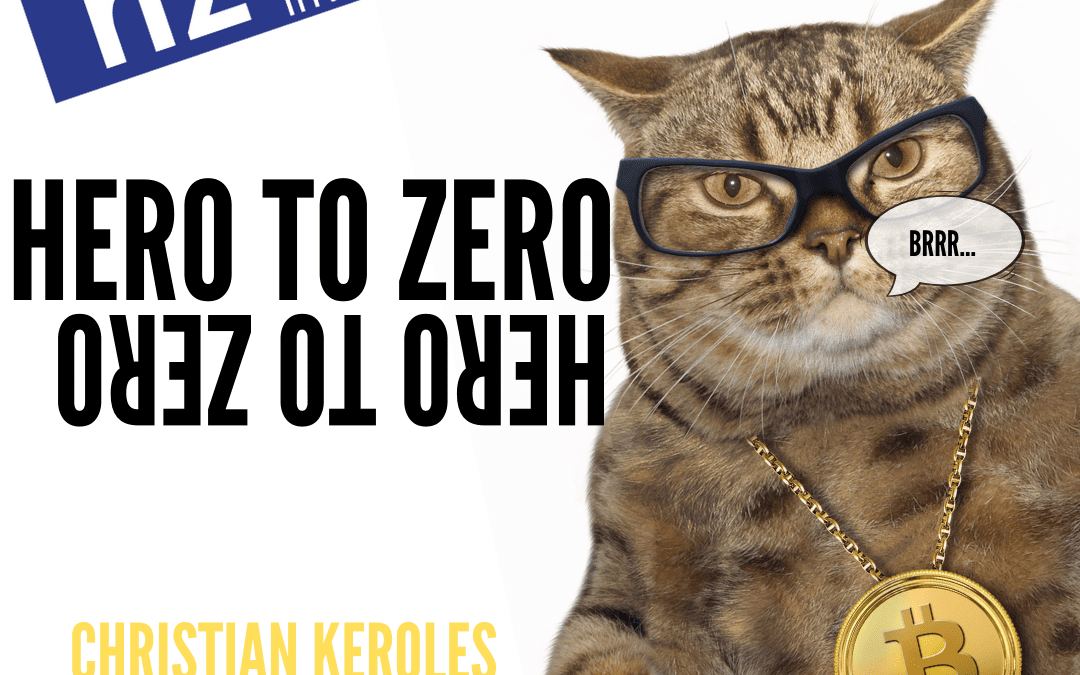
Bitcoin: Hero to Zero / Zero to Hero? Christian Keroles
Today we’re joined by Christian Keroles, Bitcoin fanatic and editor of multimedia content for the internationally renowned Bitcoin Magazine. Christian gives us a blockchain and bitcoin 101 for the uninitiated, we then talk about crypto as part of an investment portfolio, the Lindy Effect, and discuss Bitcoin’s boom or bust potential.
Christian first got into crypto currency in 2017 when many people, including myself, were piling on. If you were there at the time, you’ll remember it as a period of pure euphoric derision. There were coins for everything and Bitcoin was on its way to landing on mars — as Christian put it “anything with a ticker was going to the moon.”
As we all know, this didn’t last forever and the all time highs set back then haven’t [yet] been revisited since. Plenty of people walked off with their tails between their legs, while other more evangelical owners like Christian and myself decided to stick it out.
I remember a conversation a couple of years ago with another guest — an intelligent guy — who lamented that ‘it’s a ponzi scheme and it’s going to zero – get your money out now’. Smart fella, sure, but I’m glad I’m glad I didn’t heed his advice. How often do we conflate intelligence with wisdom right?
We’re a few years removed from these discussions now and there’s a general consensus that Bitcoin is very far from, as my friend put it, a ponzi scheme.
At the core, Bitcoin is uncensorable and incorruptible items of digital value. Many people are put off by the stories about hacks, but fail to understand that these are taking place on exchanges or through digital wallets, quite separate from the bitcoin blockchain itself. Yes, we are right to be sceptical about some of the actors working on the peripheries of Bitcoin, but there’s pretty compelling proof in the legitimacy of the technology itself.
Of all of the cryptocurrencies, Bitcoin is the original. It arrived with its founder “Satoshi Nakamoto” (a pseudonym that I successfully butcher on the podcast – Natoshi Saka what?) Nearly 12 years ago the whitepaper was delivered to us, which, Christian posits, is a relatively good reason to assume it will still be around 12 years from now, too. He credits the Lindy effect; a theory that the future life expectancy of a technology is proportional to its current age, so that every additional period of survival implies a longer remaining life expectancy.
This brings us to the question of whether Bitcoin will be boom or bust in the long term. Should Christian be right and Bitcoin is still front and centre 12 years from now, it would make sense that it has either been deemed absolutely worthless and the value dropped down to zero, or perhaps that it’s been elevated to becoming a cornerstone value, not tied to any particular country.
My guess on which one of these two futures will come about is exactly that — a guess. Christian and I are biased owners of Bitcoin who are both excited in its long term promise so please don’t use this as investment advice on a highly speculative asset.
If you’re considering dipping your toes into crypto, do your own due diligence thoroughly and independently.
So on that – check out episode 94 here with Easy Crypto for a bit of background as to why I recommend them for any first time Crypto buyer to be. If you’re ready to get into Bitcoin, make a start here by setting up an account with Easy Crypto.
_________________________________________________________________
The NZ Everyday Investor is brought to you in partnership with Hatch. Hatch, let’s you become a shareholder in the world’s biggest companies and funds. We’re talking about Apple and Zoom, Vanguard and Blackrock.
So, if you’re listening in right now and have thought about investing in the US share markets, well, Hatch has given us a special offer just for you… they’ll give you a $20 NZD top-up when you make an initial deposit into your Hatch account of $100NZD or more.
Just go to https://hatch.as/NZEverydayInvestor to grab your top up.
__________________________________________________________________
The NZ Everyday Investor would also like to acknowledge the support of kōura.
Most people fixate on just fees or historical returns when trying to choose a KiwiSaver fund. But professionals know there’s the third, arguably more essential component to consider – asset allocation. kōura’s digital advice tools will build you a KiwiSaver portfolio that has the perfect asset allocation just for you. Of course you could also just choose your own KiwiSaver portfolio with them too. Give them a try and see what your ideal KiwiSaver asset allocation looks like for you.
___________________________________________________________
Like what you’ve heard?
You can really help with the success of the NZ Everyday Investor by doing the following:
1- Tell your friends!
2- Write a review on Facebook, or your favourite podcast player
3- Help support the mission of our show on Patreon by contributing here
4- To catch the live episodes, please ensure you have subscribed to us on Youtube:
5- Sign up to our newsletter here
NZ Everyday Investor is on a mission to increase financial literacy and make investing more accessible for the everyday person!
Please ensure that you act independently from any of the content provided in these episodes – it should not be considered personalised financial advice for you. This means, you should either do your own research taking on board a broad range of opinions, or ideally, consult and engage an authorised financial adviser to provide guidance around your specific goals and objectives.
_____________________________________________________________________________
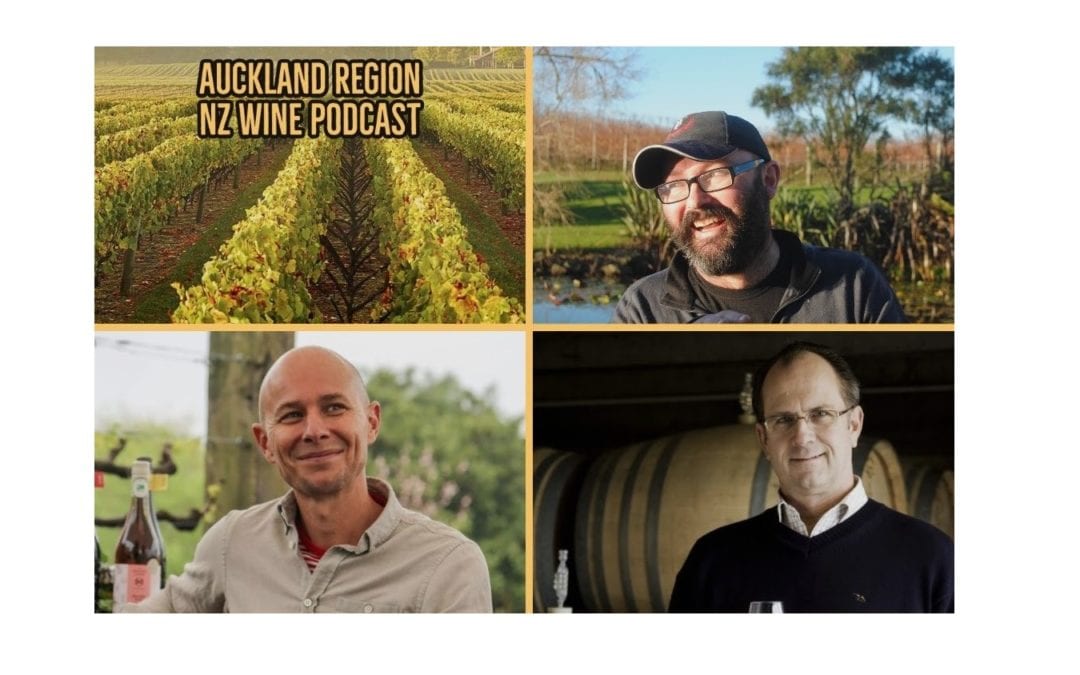
Harvest Update 2020 Auckland
Winemakers from the Auckland region tell us how the year was leading up to the 2020 harvest and how the vintage is looking.
Listen to the Podcast Here:
![]()
![]()
![]()
![]()
Episode Links:
Michael Brajkovich – Kumeu River Wines: www.kumeuriver.co.nz
Pete Turner – The Hunting Lodge Winery: www.thehuntinglodge.com
James Rowan – Westbrook Winery: www.westbrook.co.nz
Tyler Soljan – Soljans Estate Winery: www.soljans.co.nz
www.nzwinepodcast.com
www.instagram.com/nzwinepodcast
Music track featured on this podcast: ‘Here He Was’ – courtesy of Brent Page. Dog Squad Music
Thanks to www.bizebu.com Let’s get your business started!
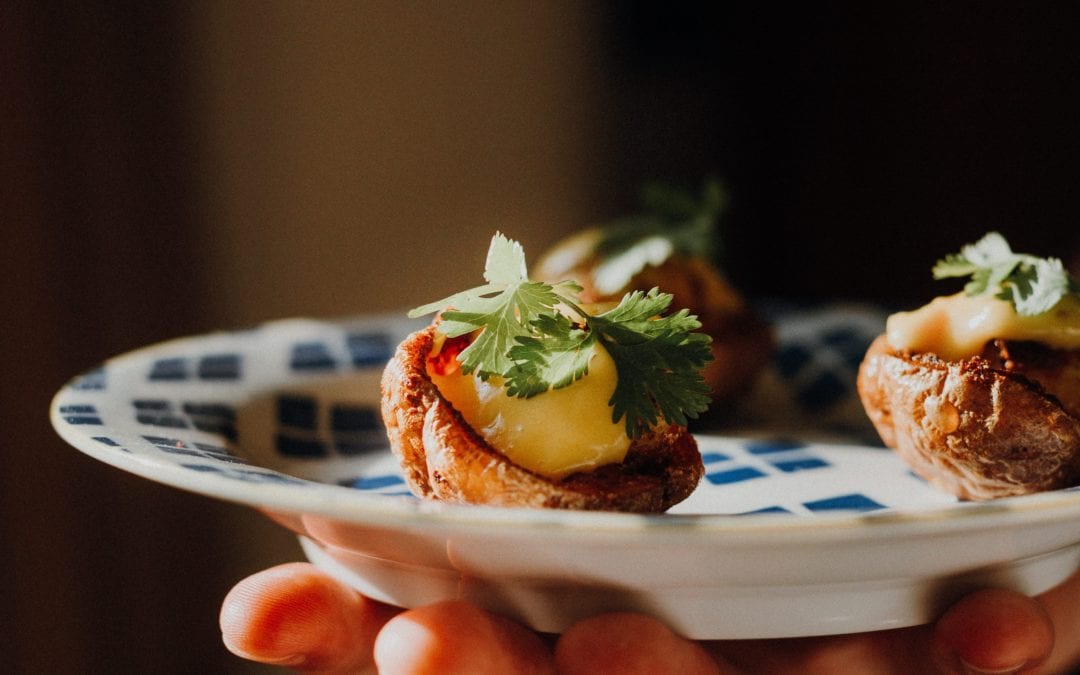
Eat With Me, at My Home
“If you really want to make a friend go to someone’s house and eat with him…the people who give you their food give you their heart” – Chef Cesar Chavez
Archana is a professionally trained chef who trained under a Kiwi chef at a five-star restaurant in India. When she moved to New Zealand, she was shocked to find that Kiwi kitchens had much fewer staff and much more fancy equipment to make up for the lack of hands. Another surprise was finding out that not everything in the kitchen was made from scratch.
The inspiration to start Eat with Me came after a visit to a local restaurant in Indianapolis, USA where there was no menu. The chef would cook the day’s special and that’s the only meal you could eat. Even better was the fact that you could talk to the owners and the chef as they cooked, and you ate. Archana loved the wholesome, friendly experience and wanted to replicate this here in New Zealand.
At Eat with Me, Archana cooks for you and you eat in her dining room or she will come cook for you at yours. From the stock to the salad to the meat, everything is made by Archana from scratch. She also runs a monthly supper club where you can get together with other strangers and come together over a meal that she’s cooked for you. Such home dining experiences are quite unique in New Zealand but have become a big industry overseas, especially in India
On the show we talk about:
- Growing up in a Keralan home
- India vs New Zealand – how different is the commercial kitchen?
- Will home dining become as popular as it is in other parts of the world?
- The joys of sitting around a table with strangers
- Why it’s important to have a job that pleases your soul
Listen to the Podcast Here:
Quotes from the episode:
“If you ask me what I ate that day at the restaurant I don’t remember. What I remember is that the meal was wholesome and I felt completely fulfilled eating there. It was like eating at a close friend’s house.”
“In a private dining setting like the one we offer at Eat with Me, there’s nowhere to hide. People get the see the real me through the food I cook for them”.
“At the heart of it, I love feeding people at my home. I cook food that is simple but with layers of flavor. When people see the food I cook for them on the plate they may feel its really simple, but when they taste it they will be able to taste the hours of work that has gone into cooking the meal”.
If you are after a personalized and comfortable dining experience curated just for you, get in touch with Archana Kurup of Eat with Me: www.eatwithme.co.nz

Could Kiwis who pay off Cyber Ransoms land in jail? (Plus: Instagram is 10, Naughty IT guy jailed, Windows XP shame + more)
Sarah Putt joins Paul Spain on the latest NZ Tech Podcast discussing – angry IT guy lands in jail and a $300k fine, Spark / Team New Zealand have opened the 5G Race Zone, Scott Bartlett steps down as Kordia CEO, Google Nest Router / Wifi, Instagram is 10, New Zealand clings to old Windows, could ransom payments lead to jail time?
Highlights on this episode with Sarah Putt and Paul Spain:
- IT guy wipes systems and get jail plus NZ$300,000 fine
- Spark / Team New Zealand have opened the 5G Race Zone
- Arrival of Google Nest Router and Wifi devices in the NZ market – via a partnership with retailers and Internet provider Orcon – though it is arriving 11-months after be launched in the U.S.
- Instagram is 10!
- New Zealand still clinging on to Windows 7 and Windows XP
- Could jail time be on the cards for those paying cyber ransoms?
- Scott Bartlett has stepped down as CEO of Kordia due to further issues following taking time off recently following multiple brain tumor’s – we wish him the best and hope to see him back soon
Listen to the Podcast here:
Special thanks to organisations who support innovation and tech leadership in New Zealand by partnering with NZ Tech Podcast:
Umbrellar Connect
Sumo Logic
HP
Samsung
Vodafone NZ
Spark NZ
Vocus
Gorilla Technology


